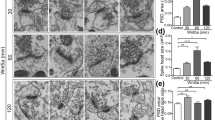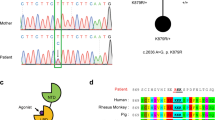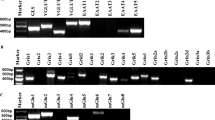Abstract
Glutamate induced rapid phosphorylation of moesin, one of ERM family proteins involved in the ligation of membrane to actin cytoskeleton, in rat hippocampal cells (JBC, 277:16576-16584, 2002). However, the identity of glutamate receptor has not been explored. Here we show that a-amino- 3-hydroxy-5-methyl-4-isoxazolepropionic acid (AMPA) receptor is responsible for glutamate-induced RhoA activation and phosphorylation of moesin. Glutamate induced phosphorylation at Thr-558 of moesin was still detectible upon chelation of Ca(2+), suggesting involvement of AMPA receptor instead of N-methyl D-Aspartate (NMDA) receptor in this phosphorylation of moesin. AMPA but not NMDA- induced moesin phosphorylation was independent of Ca(2+). Both AMPA and NMDA but not Kainate induced moesin phosphorylation at similar levels. However, the kinetics of phosphorylation varied greatly between AMPA and NMDA where AMPA treatment rapidly increased phosphomoesin, which reached a maximum at 10 min after treatment and returned to a basal level at 30 min. In contrast, NMDA-induced phosphorylation of moesin reached a maximum at 30 min after treatment and was remained at higher levels at 60 min. A possible involvement of RhoA and its downstream effector, Rho kinase in the AMPA receptor-triggered phosphorylation of moesin was also explored. The kinetics for the glutamate- induced membrane translocation of RhoA was similar to that of moesin phosphorylation induced by AMPA. Moreover, Y-27632, a specific Rho kinase inhibitor, completely blocked AMPA-induced moesin phosphorylation but had no effect on NMDA-induced moesin phosphorylation. These results suggest that glutamate-induced phosphorylation of moesin may be mediated through the AMPA receptor/RhoA/Rho kinase pathway.
Similar content being viewed by others
Article PDF
Author information
Authors and Affiliations
Rights and permissions
This is an Open Access article distributed under the terms of the Creative Commons Attribution Non-Commercial License (http://creativecommons.org/licenses/by-nc/3.0/) which permits unrestricted non-commercial use, distribution, and reproduction in any medium, provided the original work is properly cited.
About this article
Cite this article
Kim, SJ., Jeon, S., Shin, EY. et al. AMPA, not NMDA, activates RhoA GTPases and subsequetly phosphorylates moesin. Exp Mol Med 36, 98–102 (2004). https://doi.org/10.1038/emm.2004.14
Published:
Issue date:
DOI: https://doi.org/10.1038/emm.2004.14



